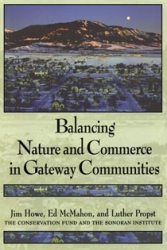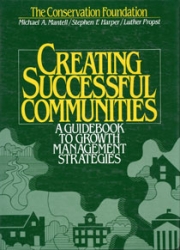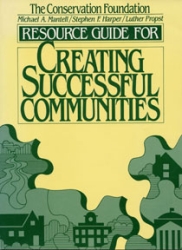
Luther Propst
Luther Propst co-founded and directs the Sonoran Institute, with offices in Tucson and Phoenix, Arizona; Bozeman and Helena, Montana; Grand Junction, Colorado; Cheyenne, Wyoming; and Mexicali, Mexico. The Sonoran Institute’s mission is to inspire and enable community decisions and public policies that respect the land and people of the West. Under his guidance the Institute has grown to an annual budget of $5.2 million and is now recognized as a leading practitioner of community-based, collaborative, and innovative conservation efforts to integrate conservation and economic values throughout the West. The Sonoran Institute also works throughout the West on policies to improve the management of state trust lands, to better integrate conservation into land development, and to assist cities and counties better manage growth.
Previously, Propst practiced law, where he represented landowners, local governments, and organizations nationwide in land-use matters, and with World Wildlife Fund in Washington D.C. Propst received his law degree and master’s in regional planning from the University of North Carolina at Chapel Hill.
Propst has co-authored three books, and frequently speaks and writes on Western conservation, growth management, economic development, and state trust lands. In addition, he serves on the boards of the National Conservation System Foundation, High Country News, the Murie Center, the Rincon Institute, and the Arizona League of Conservation Voters Education Fund.



